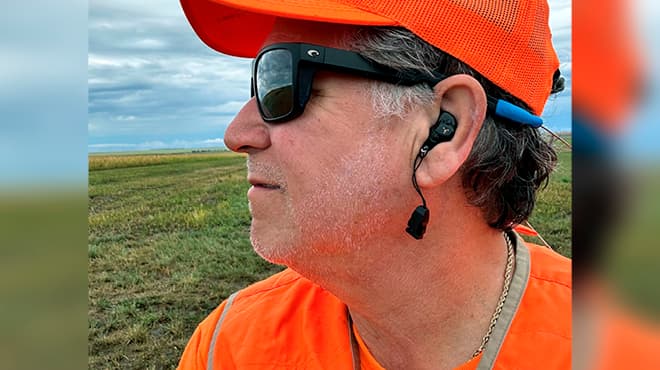Posted By

Quintin Cappelle, M.D.
Otolaryngology (ENT)

Scott Spritzer, D.O.
Neurology (Brain & Nerves)
Recent Posts
-

-

-
 Speaking of HealthUnlocking the mystery of your sinuses: Answers to 8 common questionsAugust 12, 2021
Speaking of HealthUnlocking the mystery of your sinuses: Answers to 8 common questionsAugust 12, 2021
Your sinus headache may not be what you think

Nearly everyone experiences a headache at some point, and the pain can range from mild to debilitating.
Sometimes, headaches are accompanied by pain and pressure in your brow and forehead and cause nasal symptoms. Many people associate sinus and nasal symptoms with a sinus infection, also called sinusitis, or with an upper respiratory infection, such as a cold. Someone may say that they're experiencing a sinus headache. But sinus and nasal symptoms often can signal something else: a migraine headache.
The term "sinus headache" isn't an actual medical diagnosis. Studies show that 90% of people with sinus headache symptoms are experiencing migraine headaches.
Is your head pain from sinusitis or migraine?
Migraines and headaches from sinusitis are easy to confuse because the signs and symptoms of the two types of headaches may overlap. Also, migraine headaches affect people differently, and symptoms can change over time. That is why many people who have had migraine headaches in the past are surprised when they begin having sinus and nasal symptoms with a migraine headache.
Sinusitis usually isn't associated with nausea or vomiting or aggravated by noise or bright light, which are all common features of migraines. Instead, it tends to occur after a viral upper respiratory infection or cold and includes thick, discolored nasal mucus, decreased sense of smell, and pain in one cheek or upper teeth.
Headaches due to sinus disease often last several days or longer, while migraines most commonly last hours to a day or two.
Previous misdiagnosis of headaches
Many people who assume they have headaches from sinusitis have been misdiagnosed and prescribed an antibiotic for sinusitis. In these cases, the antibiotics aren't necessary and could be harmful.
Some people may feel better after they take an antibiotic because it may decrease inflammation in the sinuses caused by migraine headache or because they think the antibiotic is helping, known as the placebo effect.
However, an antibiotic is not the correct treatment for a migraine headache.
These are a few ways you can tell whether your sinus and nasal symptoms are part of a sinus infection or part of a migraine headache:
| When you have a sinus infection | When you have a migraine headache |
| You likely just had or have a cold. | You do not have a cold. |
| You have thick, colored nasal mucus. | Any drainage from your nose is clear. |
| You usually need to blow your nose and cannot smell well. | Your sense of smell is not affected. |
| You usually can function. | Your symptoms tend to get worse with physical activity, such as walking or bending over. |
| You may feel better after you lie down or sleep. |
Risk factors for migraine headaches
Migraine headaches can affect anyone. However, they're more common in people between age 20 and 50.
More than twice as many women as men have migraine headaches. Women over 50 often have fewer and less severe migraine headaches than they had earlier in life. Sometimes, migraine headaches stop after menopause.
Migraine headaches tend to run in families. Seventy-five percent of people with migraine headaches have a family history of migraine headaches.
Proper diagnosis
The cause of headaches can be challenging to determine. Your healthcare team will ask you questions about your headaches and perform a physical exam. You also may have a CT scan or MRI to help determine the cause of your headache. There are several ways to treat headaches, and your care team will work with you to find the best option for you.
Talk with your primary care provider if your headache symptoms happen more than 15 days a month, over-the-counter pain medication doesn't work, or you miss school or work because of frequent headaches.
Call 911 if you have the worst headache of your life or a sudden, severe headache accompanied by any or all of these:
- Confusion or trouble understanding speech
- Fainting
- High fever
- Numbness, weakness or paralysis
- Trouble seeing, speaking or walking
Quintin Cappelle, M.D., is an otorhinolaryngologist and head and neck surgeon in La Crosse and Onalaska, Wisconsin. Scott Spritzer, D.O., is a neurologist in Eau Claire, Wisconsin.


